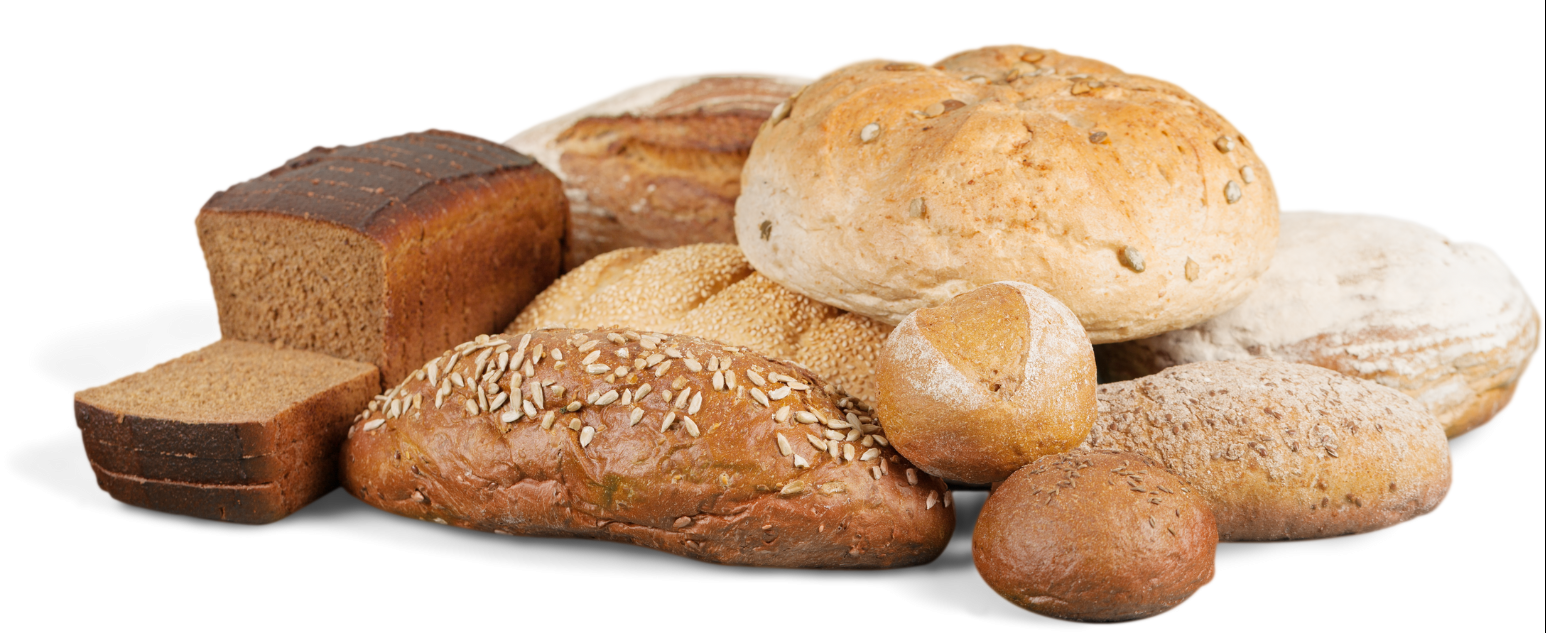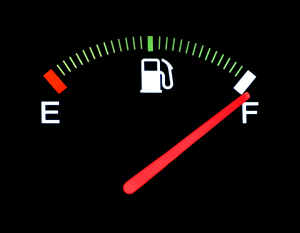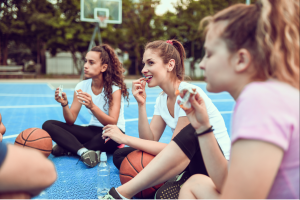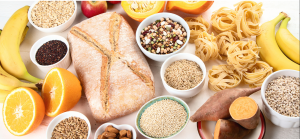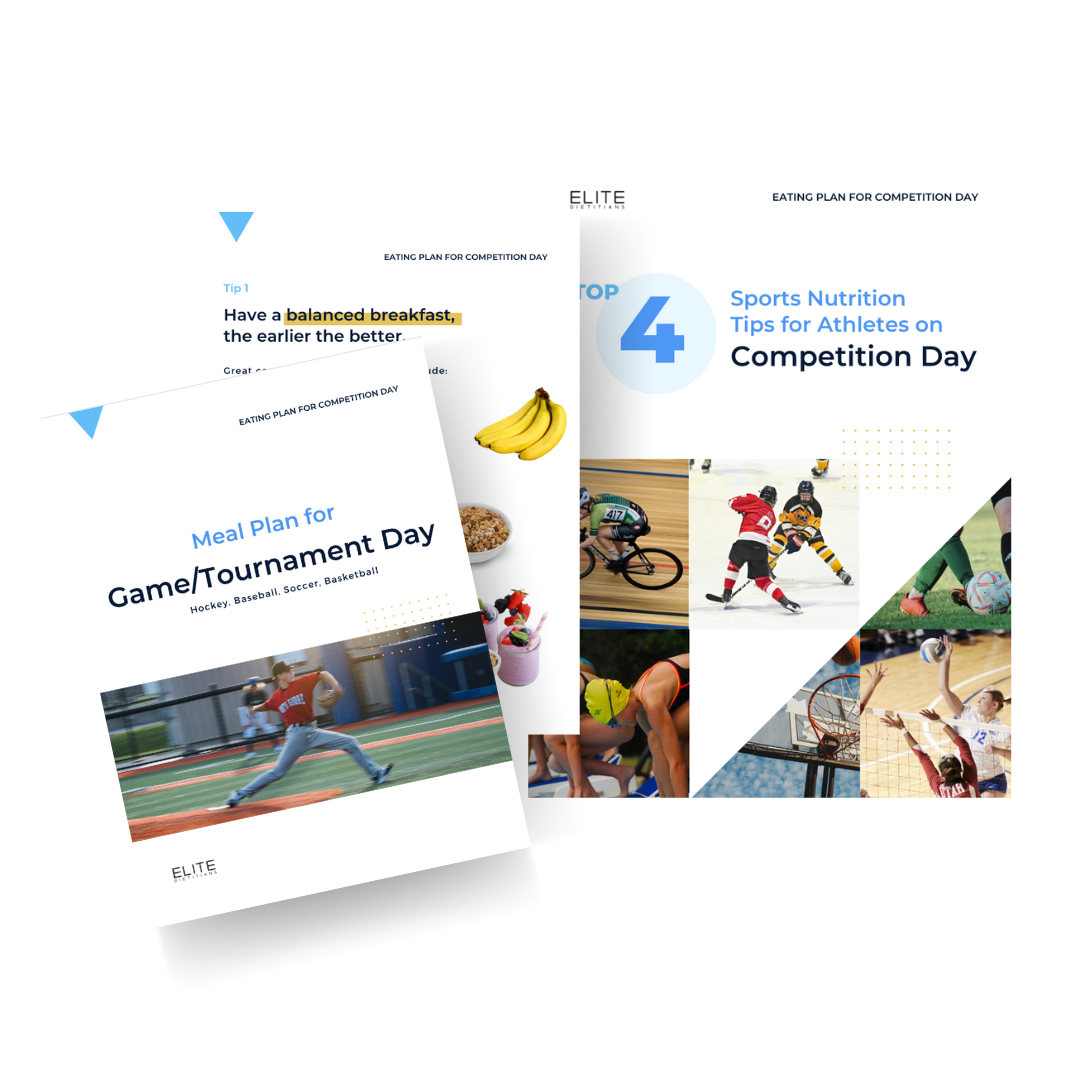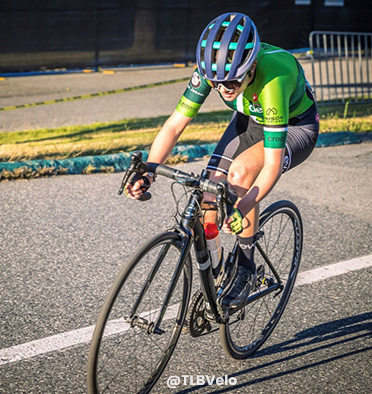There is so much myth and legend about carbohydrates, so here is a deep dive into everything athletes need to know about carbs: from carb loading and low carb diets to the types of carbs and the best fuel for sport.
What are Carbs?
There are several types of carbs including whole grains, refined, processed and everything in between. We get carbs from nutritious foods like beans, legumes, vegetables, fruits, quinoa, oats and pasta. We also get carbs from foods that have few nutrients like bubble tea, mochachinos, french fries and popcorn. Carbs are simply the energy form that our bodies use to fuel sport, and it can get those carbs from a variety of different foods.
We are led to believe that all carbs are bad, but that’s simply not true.
Carbs are Your Main Fuel for Sport.
Your muscles use mostly carbohydrates to fuel moderate to high intensity sports such as team sports, endurance sports and sprint events.
Glucose, the body’s simplest form of carbohydrate, is the main fuel for the energy systems that are used in medium to high intensity exercise. In contrast, fat and protein take a long time to break down into fuel and cannot sustain high intensity activity. Fat and protein can fuel long, slow exercise like a long walk or a five hour bike ride. So, an athlete who is fueled with fat or protein cannot go as fast and will fatigue sooner during intense activity.
You Need More Carbs When You are More Active.
Athletes who do a high volume of endurance training such as swimmers and cyclists need to eat a lot more carbs than other athletes. The amount of carbs a person needs depends on their volume of activity. This is in contrast to your needs for protein and fat, which do not vary as much by activity level.
Athletes need to add extra carbs on high volume training days.
The amount of carbs you need also varies from one day to another, depending on how much training you have that day. You may need twice as much carbs on your big training days, compared to regular days. For example, you may need to add a few extra snacks on days that you have long practices, double practices or training camps.
Your Muscles Have a Gas Tank for Carbs.
Your muscles have a gas tank for carbs called glycogen stores, where they keep their carbohydrate fuel stores. The muscles’ gas tank can hold enough carbohydrate to last through 45-60 minutes of intense exercise.
Athletes perform faster and longer when their carb gas tank is full.
When the gas tank is empty:
- Your muscles run out of glucose, their main fuel for exercise.
- You break down fat and muscle for energy.
- Your legs get heavy and slow.
- You lose focus.
- Practice feels harder.
- Performance tanks.
If practice feels HARD and SLOW, it is NOT because you are tired or not strong enough, it is because your gas tank is EMPTY.
Recovery Snacks Refill Your Gas Tank.
- Your muscle gas tank is always empty at the end of every practice or game and it opens up for only 30 minutes after every practice or game.
- You need to eat a recovery snack within 30 minutes after every practice or game, to refill your muscle gas tank.
- Anything you eat after your 30 minute window, does not get into your gas tank and will not be available to your muscles as fuel for your next practice.
Have a recovery snack within 30 minutes after every practice and game, to refill your gas tank.
Recovery Snacks:
- Refill your gas tank, so you can train faster and longer at the next practice.
- Stop muscle breakdown.
- Build muscle and so you get stronger.
What is a Good Recovery Snack?
Recovery Snacks are mostly carbs and a little protein: about 30-50 grams of carbs with 10-15 grams protein.
A protein shake is not a recovery snack.
Recovery Snack Ideas:
- Smoothie
- Energy bar
- Sandwich
- Yogurt + fruit
- Chocolate milk
- Banana bread + protein shake
Want some recovery snack ideas? Check out this reel with a comprehensive list of recovery snacks!
Embed this instagram post: https://www.instagram.com/reel/Cuz3CGDuH40/?utm_source=ig_web_copy_link&igshid=MzRlODBiNWFlZA==
There are Two Types of Carbs.
There are two types of carbohydrates that fuel your muscles, just as there are two types of wood to build a fire: kindling and logs. Kindling is a refined wood that catches fire quickly, creates a big flame quickly and has no lasting power. Logs are denser pieces of wood that take a long time to burn but once they get going, they last a long time. Carbohydrates behave in the same way: If you fuel your body with kindling carbs all day, your energy will constantly crash. If you fuel your body with log carbs you will get lasting energy throughout the day.
Log carbs:
Log carbs have more fiber, protein and whole grains and are slower to digest, absorb and release energy slower and steadier than kindling carbs.
Include Log carbs at meals for lasting energy.
Log Carb Foods:
- Whole grain toast, peanut butter, eggs, milk
- Pasta, bolognaise, salad
- Vegetable chicken stir fry with brown rice
- Greek yogurt with fruit and seeds
Kindling Carbs:
Kindling carbs are refined, white, processed or have added sugars and release glucose quickly in your body. Avoid relying on kindling carbs at your meals, because your energy will crash shortly after. You can use kindling carbs for a fast snack right before you jump into practice and need immediate fuel.
Best time to have Kindling carbs:
- 15-30 minutes before your practice or game
- during a game or practice over an hour
Kindling carbs are a fast fuel before or during a game.
Fast acting kindling carbs like sport drinks or bars during a long practice or game is a great way to top up your fuel stores to power your muscles, before they crash. Switching from plain water to a sports drink at half time or before third period is a great strategy to perform your best and ensure that your legs have the fuel they need to finish strong.
Kindling Carb Foods:
- Granola bar
- Sport drinks or gels
- Chocolate Milk
- Fruit e.g. watermelon
- Energy balls
Carb Loading for Endurance.
Carb loading is a strategy used by endurance athletes to top up their gas tank (glycogen stores) by eating a very high carb diet several days before a race. It is commonly done in preparation for endurance events like marathons, cycling and triathlons. Done correctly, carb loading before a race can boost an athlete’s glycogen stores and prolong their performance before fatigue by 2-3%.
Carb loading is not eating a huge pasta meal.
Carb Loading Facts:
- Must be done during a taper when training is reduced in the week before a race.
- Involves eating more carbs and less fat for several days before a race.
- Keep eating same amount of calories overall.
- Includes a balance of whole grains, cereals, milk, fruits, vegetables.
- Causes a 1-3 lb temporary water weight gain, which is lost when the carbs are used up during the race.
- Is helpful only if your event or race is over 90 minutes duration.
Athletes wanting to carb load before a race should work with a sport dietitian.
Low Carb Diets Kill Performance.
Athletes who restrict their carbohydrate intake will fatigue sooner and have lower focus, strength and endurance. Any athlete who has tried to train while eating low carb, keto or fasted can tell you that it is a miserable experience. Training feels extraordinarily hard and it destroys their performance. Most are unable to complete their training as time to fatigue is greatly reduced. In fact, there is not a single sport or situation in which an athlete performs well when they consume inadequate carbs.
All athletes perform better when they have enough carbs.
Cutting out carbs on training days reduces your endurance, speed, makes exercise seem much harder and greatly reduces time to fatigue. This has been studied from every angle, including wrestlers who are cutting weight before a match or cyclists who go on long fasted training rides. I have met many recreational athletes who tried the keto diet when it was in fad and they quickly aborted when they could not complete their normal training practices.
Low carb diets kill athletic performance.
Yes it is true that low carb diets increase the body’s reliance on fat as fuel during exercise. There is a theory that this can be an advantage during long endurance exercise as the body has unlimited stores of fat available for use. However, in practice athletes who are burning fat during endurance exercise cannot go as fast or as long as an athlete who has carbohydrate as their main fuel.
Low carb diets do not make you tougher, it just makes training so tough that you struggle to complete it.
Carbs do not Cause Weight Gain.
Weight is connected to activity and calorie intake as well as hormones, medication and genetics.
Carbs do not affect your weight.
We gain weight when we eat more calories than we burn. A sedentary person who consumes a high proportion of processed foods over a long period of time may consume too many calories and will gain weight as a result. Conversely, an active athlete who only eats nutritious foods and never eats processed foods will likely develop a problem of underfueling called Relative Energy Deficiency in Sports. For more information on what happens when athletes underfuel for sport, read this blog All Young Athletes Should Know about RED-S. For growing athletes, it is hard to reach their energy needs by eating vegetables, fruits, rice, chicken and yogurt. Athletes often need to top up with some white bagels, muffins, dessert or junk food here and there to hit their energy needs. That extra top up of refined foods can help an athlete achieve recovery and refueling during heavy training.


